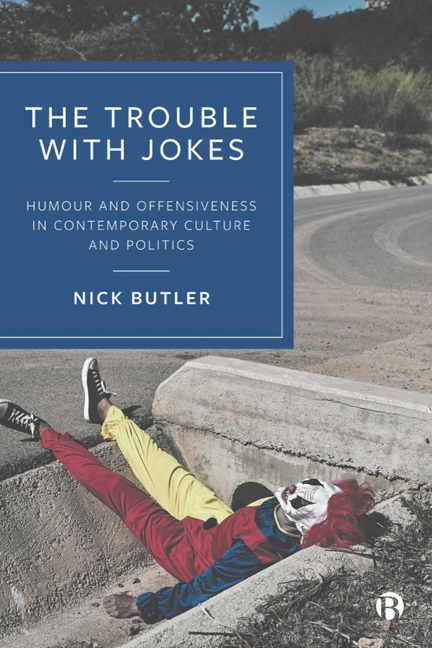4 - Evil Clowns
Published online by Cambridge University Press: 27 March 2024
Summary
In August 2016, residents in Green Bay, Wisconsin reported sightings of a clown wandering the streets at night and holding in its hand four black balloons. After photos of the clown went viral, other sightings began to occur with alarming frequency. Clowns were spotted in woods, outside schools, and on urban scrubland across the US. A typical video on YouTube showed a clown skulking in the shadows before charging towards the camera, teeth bared in a menacing grin. The news media amplified the phenomenon by broadcasting interviews with worried parents and law enforcement officers. Before long, clown sightings had spread to the rest of the world.
The Great Clown Scare of 2016 taps into a deeper myth around clowns. The modern circus clown has its historical roots in trickster figures such as Harlequin and Pulcinella, stock characters who follow their own strange rules and mock our sense of order and decorum. The contemporary clown, too, is an ambiguous character, by turns silly and threatening. In the circus tent, the clown wears outrageous clothes and puts on an odd voice, throwing pies at people and destroying property with a gigantic mallet. It’s unnerving to watch the clown go about its manic business and we’re unsure whether we should join in with the fun or take cover from the chaos.
In recent decades, the evil clown has become a cultural archetype, one that resonates with some of our most primal fears. As cultural critic Mark Dery puts it, ‘the psycho-clown who takes sociopathic slapstick outside the ring is moving centre stage in the pop unconscious’. Part of this shift is no doubt related to US serial killer John Wayne Gacy, who famously performed at kids parties and charity events as Pogo the Clown, earning him the sobriquet the ‘Killer Clown’. Gacy’s infamous statement to police officers that ‘a clown can get away with murder’ confirms our worst suspicions about clowns: that behind all the extravagant wackiness lurk some grisly secrets.
Since Gacy, the trope of the scary clown has continued to spread in popular culture. We see various iterations of this candy-coloured nightmare in books and films,
- Type
- Chapter
- Information
- The Trouble with JokesHumour and Offensiveness in Contemporary Culture and Politics, pp. 74 - 91Publisher: Bristol University PressPrint publication year: 2023



